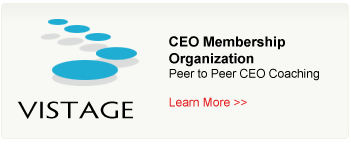Cover Story: You
More than a few times I have found a client who underestimated what she or he had learned, mastered or accomplished in a position they were leaving. They had never asked how the experience changed them, their abilities, their beliefs and attitudes and their network of acquaintances. Equally frequently, my new clients have yet to apply the same thinking prospectively to a desired new position or to evaluation of opportunities which present themselves.
These assertions are equally true of CEOs changing companies, senior team members and middle managers.
This is a companion piece to “What Matters Most to Me — Part One, Priorities” which is a look in the mirror at what gives you meaning, satisfaction and joy from what you do. I hope you find this supplement useful as my clients have. I look forward to knowing your story and how this may have helped (or comments on what would make it more helpful). It is probably helpful even if you are staying within an enterprise but seeking higher levels of responsibility.
1. My Cover Story Today: My Most Recent Position(s)
Pick a periodical that will be meaningful to you if someone writes a cover story about you and your enterprise/unit and your accomplishments these past few years. It could be a newspaper or trade journal or a more popular magazine.
Write the 100-word abstract. Then write between two and three pages. Include these topics in the article as you do a retrospective:
– What was the enterprise/your unit like when you found it?
– What was your initial role? How did it evolve?
– What is the specific set of accomplishments you hoped to achieve (in the marketplace, inside the enterprise, with investors, et al)? what did you achieve?
– What were the specific challenges and how did you and your team surmount them?
– What is your unit or the whole organization now positioned to do that it couldn’t dream of doing when you took the role?
– What have you changed and what have you preserved?
– Who was the better for your having been in the position? In what way?
– How has being in the role changed you — increases in your scope and level of abilities, knowledge, network of people? How has it matured or otherwise changed your behaviors in ways that are valuable going forward
Look at any appraisals and feedback you have received. If that isn’t enough of a clue or isn’t your view about speak with a few people in the enterprise and do your homework. But do the cover story soon. If you do have a sense in your gut about the answers, then write the first draft and improve it as soon as you can. Then use that to smoke out more insights from people you trust.
2. My Future Cover Story (Not Decided Yet On New Position)
In a separate item in the archives, the cover story in First 90 Days deals with the challenges of a new position that you have already accepted and provides additional guidance in that situation. This guidance applies more to seeking and evaluating opportunities not yet accepted.
Again, pick a periodical that will be meaningful to you if someone writes a cover story about you and your enterprise and your accomplishments in three years. It could be a newspaper or trade journal or a more popular magazine.
Write the 100-word abstract. Then write between two and three pages. Include these topics in the article as you do a retrospective:
– If you have an opportunity for a new position, how does the opportunity match with What Matters Most to you?
– What is the current state of the enterprise or your unit?
– What are the prominent characteristics of the culture and of the people with whom you would be working?
– What would be your initial role?
– What is the essence of the activities in which would be engaged?
– What is the specific set of accomplishments you hope to achieve in the next few years (in the marketplace, inside the enterprise, with investors, et al)?
– What would the organization or unit be positioned to do that it couldn’t dream of doing when you have achieved your accomplishments?
– What will you have changed and what have you preserved?
– What are the consequences for various stakeholders of achieving that new set of capabilities or reputation?
– How will the attempt change you (abilities, knowledge, behaviors, network)
If you do not yet have a specific opportunity, try the same exercise for your dream job or for two different desirable jobs. You can constrain the scope to something manageable if you know what industry or function or position of responsibility turns you on.
Good luck. And if this has helped you, I look forward to reading your story on my blog.
Stephen H. Baum
www.Stephenhbaumleadership.com
Tags: Changing Jobs, Evaluate the Past, Experience
 Countless more ordinary people of equal talent never developed the leadership core required to run the show. Why not?
Countless more ordinary people of equal talent never developed the leadership core required to run the show. Why not?

Thu, Jan 31, 2008
Leadership Development